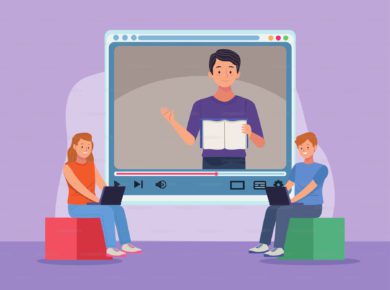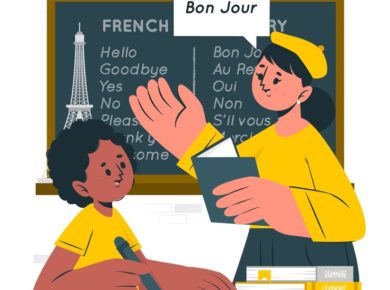Every teacher aspires to create a positive and effective learning environment for their students. However, even the most experienced educators can make certain mistakes that can hinder their effectiveness and impact students’ learning. Making mistakes as a teacher is okay but by being aware of these common mistakes tutors make, one can ensure to create a positive and impactful learning environment for their students.
In this blog, we will discover different ways to avoid these common mistakes tutors make.
Common Mistakes that Tutors Make

1. Lack of preparation
One of the very common mistakes tutors make is going unprepared. Sometimes tutors can find them unprepared during the start of any session. There could be many reasons for this, those who are expert in their subject might become overconfident about their ability to teach effectively and reach unprepared.
Due to other responsibilities, they may find it difficult to take out time to prepare themselves.
Consequences
Without a well structured plan, lessons become disorganized and lead to chaotic classroom management. Both tutor and students’ time will be wasted if the tutor is not prepared with what to be taught in the classroom leading to lack of focus and direction in the classroom.
Avoidance
To avoid this mistake, tutors should consider getting themselves prepared and reviewing the topics which they are about to introduce in their classroom. Analyze the topics or concepts your students need help with to ensure that you cover everything in your classroom.
Create an organised lesson plan that outlines the objectives of the session. Beforehand preparation will ensure that you can guide your students effectively and address their needs and goals.
2. Ignoring individual needs
One of the most common mistakes to avoid as a teacher is to ignore the individual needs of every student. Sometimes teachers tend to treat each student similarly and this is where they overlook their uniqueness in terms of learning style, strengths and weaknesses.
Tutors may not always have enough understanding of each student’s individual needs especially when they are new to the teaching system. It can be a challenge for them to cater the individual needs of each student.
It is also possible that some teachers may have received formal training in education that leads to lack of awareness about the importance of understanding the individual needs of their students.
Consequences
Some students may end up struggling to grasp the concept because your different teaching methodologies might not align with theory learning style. Your students may become frustrated if they feel their tutor is not able to address their specific learning needs.
There are chances that students may lose trust in their tutors and never ask for support even if they need it due to hesitation.
Avoidance
These common mistakes tutors make can be avoided too. You can consider conducting one-on-one sessions with your students to understand their individual needs. This will help you in understanding their unique abilities and preferences too. By understanding this, you can modify your teaching approach to meet the needs of every student in your classroom.
Try to maintain an open line of communication with your students and encourage them to express themselves in case of any difficulties they face during the learning process. By adapting your methods to suit each student, you create a more personalized and effective learning experience.
3. Poor communication
Leading to poor communication is one of the common mistakes tutors make. They may struggle to establish effective communication with their students. This could happen because of a number of reasons. A very common reason could be using complex language for communication which may lead to miscommunication and confusion among students.
(Also read: Tips For Teachers To Improve Communication Skills)
Poor communication leads to a passive learning environment where students hesitate to seek clarification from their teachers. Another reason could be, if students and teachers belong to diverse backgrounds they may face communication challenges because of differences in language, culture etc.
Consequences
When students get a feeling that their tutor is not communicating with them effectively, they may get frustrated, hindering their learning experience. Students may also lose their confidence in their ability to learn when they repeatedly encounter communication barriers.
Poor communication may prevent students from providing valuable feedback, making it difficult for tutors to adapt and improve their teaching methods.
Avoidance
Conduct a periodical check on every student whether they are able to cope up with your teaching style or not. Encourage your students to ask questions and try to resolve their query on the spot. Listen to your students’ questions and responses actively to ensure that you are interested and value their input.
Creating a welcoming environment where your students feel comfortable asking questions and participating in discussions and being sensitive to cultural and language differences in their tutoring approach will help you in avoiding this mistake.
4. Overloading information
Another one of the very common mistakes tutors make is overloading students with a lot of information. Tutors sometimes cover too much material in a single tutoring session due to many reasons.
They may feel pressured to cover a large amount of material in less time especially when they have an upcoming exam or deadline. Sometimes tutors also assume that their students have a certain level of prior knowledge leading them to present advanced or complex concepts.
Tutors may feel compelled to cover all potential topics or subtopics related to a subject, fearing that they might miss essential information.
Consequences
With too much information, students may end up feeling overwhelmed which will make it difficult for them to process and retain knowledge in an effective way. Overloaded information can hinder your students ability to understand and distinguish between essential and nonessential information.
Excessive information also creates stress and anxiety making students feel pressured to absorb and remember everything.
Avoidance
As a tutor who should identify and prioritise the key concepts for each lesson you plan to teach. List out the core ideas and focus on teaching these thoroughly rather than just attempting to cover the entire list of the topics. Make sure that your students have a strong foundation about the fundamental concepts before you dive into some advanced topics.
You can also divide complex topics into simpler segments to help students better understand. This will allow students to absorb information in a more organized way.
Offer additional resources, such as reading materials, practice exercises, or online tutorials, for students who want to explore a topic in more depth. This allows students to control the pace of their learning.
5. Ignoring feedback
The worst mistake a teacher might make is to ignore feedback from students. Tutors may sometimes fail to actively seek and respond to feedback from their students, which can hinder the improvement of their teaching methods.
Sometimes tutors think that their teaching methods are effective and students have no concerns or suggestions for improvement, this happens due to lack of feedback.
This is one of the very common mistakes tutors make that they might be hesitant to ask for feedback due to a fear of receiving negative or critical comments. They may worry that such feedback could damage their self-esteem or reputation.
Consequences
Tutors may miss valuable opportunities to identify areas for improvement in their teaching methods, resources, or communication. Failing to adapt and evolve as a tutor can result in stagnation, where teaching methods become outdated or less effective over time.
Students might start losing trust in the tutor’s commitment to help them grow and learn if they feel their feedback is disregarded.
Avoidance
Tutors should encourage their students to provide feedback on a regular basis as well as give feedback to students. This should be done by creating a safe space where students don’t hesitate to share what they feel.
Be open to receiving negative feedback and take it as an opportunity to improve your teaching methods. To make this activity even more simpler for your students you can set up feedback forms, surveys, suggestion boxes etc.
6. Not setting goals
Sometimes tutors fail to set clear and achievable goals that leave students without a sense of direction or purpose. They may assume that students already have clear learning objectives or that they don’t need explicit goals to guide their sessions.
Tutors may find it difficult to cover a large amount of material in a short amount of time, leading them to prioritize content delivery over goal setting.
Consequences
If tutors are not able to set goals clearly in the classroom, there are chances that students may lack a clear sense of direction or purpose during learning sessions. With time students may become disengaged in lessons and lose motivation to continue learning.
Tutoring sessions may lack structure and focus, reducing their overall effectiveness in helping students achieve their learning objectives.
Avoidance
As you begin with your lessons, try to engage in conversation with your students to build relationships. Doing this you can understand their learning expectations and goals. Based on these discussions you can set clear and achievable goals to improve student progress.
Use these goals as a roadmap for structuring your tutoring sessions and improving your teaching methods.
7. Monotony in teaching
Learning gets boring if the tutor relies on the same teaching methods repeatedly. This can lead to disengagement in the classroom, the most common mistakes tutor make is maintaining monotony in teaching.
Some teachers have a preferred set of teaching styles that they are comfortable with and they rely on it completely, being unaware of the monotony they create in their teaching process. They also stick to familiar methods to save time as developing new strategies will consume time.
Tutors who are pressed for time might stick to familiar methods to save time, as developing new teaching strategies can be time-consuming.
(Also read: Tips On How To Create Engaging Content)
Some tutors may not have access to a wide range of teaching resources or materials, limiting their ability to diversify their teaching methods.
Consequences
Monotony in the classroom leads to disengagement. If tutors rely on the same teaching process they may not meet the needs of every student’s learning preferences or styles.
Sticking to one method may limit the tutor’s ability to adapt to students’ needs or experiment with more effective teaching strategies.
Avoidance
Teachers should take out time to understand the diverse learning styles and preferences of their students through assessments and discussions. They should also incorporate different teaching methods such as multimedia, hands-on-activities, group discussions etc. to cater different learning styles.
Attend workshops, training sessions, and seminars on effective teaching methods to continually improve your tutoring skills and stay up-to-date with educational trends.
8. Neglecting self improvement
The worst mistake a teacher might make is to neglect their self improvement. Overlooking your self growth and professional development is a problem. Tutors who have become stable in their role may assume that their current methods and knowledge are sufficient to meet each students’ learning needs.
Tutors often have busy schedules which can make it challenging to allocate time for self-improvement. Some tutors are not even aware of the benefits of self improvement and its impact on their teaching style. This could be due to less availability of the resources and a lot of time investment.
Consequences
Those who don’t invest in self improvement may stagnate their teaching methods and knowledge. They may continue to use outdated teaching techniques which may not be very effective for their students.
Those who don’t actively seek self improvement, lead to missed opportunities to discover and implement more innovative teaching strategies.
Avoidance
Tutors should recognize the ongoing teaching process to improve their methods. Dedicate some time and effort to acquire knowledge and skills. Establish personal development goals and objectives related to teaching.
They should also look for self improvement related workshops or webinars. This will help in staying updated with the latest educational trends and research.
Invest in educational resources, such as books, online courses, and teaching materials, to enhance your knowledge and skills.
Conclusion
Making mistakes as a teacher is a very common phenomena. By preparing well, adapting to individual needs, communicating effectively, and continuously learning, you can enhance the quality of education you provide.
Remember, your role as a teacher is vital in shaping the future success of your students. Let’s steer clear of these mistakes and become the best educators we can be! Happy teaching!
Mistakes to Avoid as a Tuition Teacher FAQs
A1. Avoiding these mistakes matters because they can slow student progress and lower education quality. By dodging these pitfalls, you can foster a positive and successful learning environment.
A2. Lack of preparation can cause messy lessons and missed chances to learn. Being well-prepared helps you offer organised lessons and engaging experiences.
A3. Each student has unique strengths, weaknesses, and learning styles. By addressing their individual needs, you can provide tailored instruction and support, ensuring that they receive the necessary guidance to succeed academically.
A4. Student engagement is crucial for effective learning. Incorporate varied teaching strategies, interactive discussions, and hands-on activities to make learning enjoyable and relevant. This can help maintain student interest and motivation.




